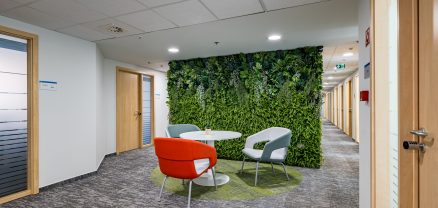Serviced Offices and Workplace Equality: A New Perspective
In the bustling world of office real estate, where square footage and location often steal the spotlight, a quieter revolution is brewing – one rooted in the very fabric of workplace culture and equality. Serviced offices, once viewed merely as flexible, cost-effective alternatives to traditional leases, are now emerging as catalysts for a broader conversation about workplace equality. As small businesses and innovative companies seek spaces that reflect their values, the concept of equality is reshaping what it means to operate within a serviced office environment.
Breaking Down Barriers in the Office Space
The traditional office landscape has long been riddled with disparities – whether it’s access to resources, opportunities for advancement, or even the physical design of the workspace itself. Serviced offices, with their flexible layouts and shared amenities, challenge these norms by offering a more inclusive environment. They democratize access, enabling startups and small enterprises to tap into premium facilities without the hefty overheads associated with conventional office leases. This leveling of the playing field means that a fledgling company can compete with industry giants, not just in innovation but in the quality of their work environment.
Moreover, serviced offices are inherently adaptable. They can be tailored to foster collaboration or provide quiet zones, catering to diverse working styles. This flexibility empowers companies to create spaces that promote equality – not just in terms of physical access but also in fostering a culture where every voice can be heard. The shared nature of these environments encourages interaction across different sectors and company sizes, breaking down silos and promoting a more equitable exchange of ideas.
Redefining Diversity and Inclusion
Workplace equality isn’t solely about physical access; it’s about cultivating a culture that values diversity and inclusion. Serviced offices often host a melting pot of businesses – from solo entrepreneurs to international firms – creating a microcosm of broader society within a single space. This diversity can be a powerful driver for equality, exposing occupants to different perspectives, cultures, and ways of thinking. It’s a living, breathing example of how varied backgrounds can coexist and thrive side by side.
Furthermore, serviced office providers are increasingly aware of their role in fostering inclusive environments. Many now incorporate design elements that promote accessibility for all, including barrier-free entryways, adaptable workstations, and inclusive communal areas. By doing so, they challenge the outdated notion that workplace equality is solely a policy issue – it’s a tangible, built-in feature of the space itself. For small businesses, this means they can align their physical environment with their values, creating a workplace where everyone feels valued and supported.
The Future of Workspaces: Equity as a Core Value
As the world of work continues to evolve at a rapid pace, so too does the understanding that equality is fundamental to innovation and success. Serviced offices are uniquely positioned to be at the forefront of this shift. Their inherent flexibility allows companies to experiment with different models of inclusivity – be it flexible working hours, diverse communal activities, or accessible facilities – without the constraints of traditional leases.
In this new perspective, workplace equality is no longer a lofty ideal but a practical reality embedded in the design and operation of office spaces. Small businesses and startups are leading the charge, recognizing that a truly equitable workplace attracts top talent, fosters loyalty, and sparks creativity. Serviced offices, with their communal ethos and adaptable infrastructure, serve as the perfect incubator for this movement. They demonstrate that the future of office space isn’t just about location or cost – it’s about creating environments where everyone has an equal opportunity to thrive.
In conclusion, the relationship between serviced offices and workplace equality is a compelling narrative of transformation. It’s a story of breaking down barriers, embracing diversity, and reimagining what an inclusive workspace can be. For the office real estate market, small businesses, and innovative companies alike, this perspective offers a fresh lens – one that sees space not just as a commodity, but as a powerful tool for fostering fairness, collaboration, and shared success. The new era of workspaces isn’t just about where we work; it’s about how we work together to build a more equitable future.

Do not hesitate to contact us
Get in touch, if you have any question


